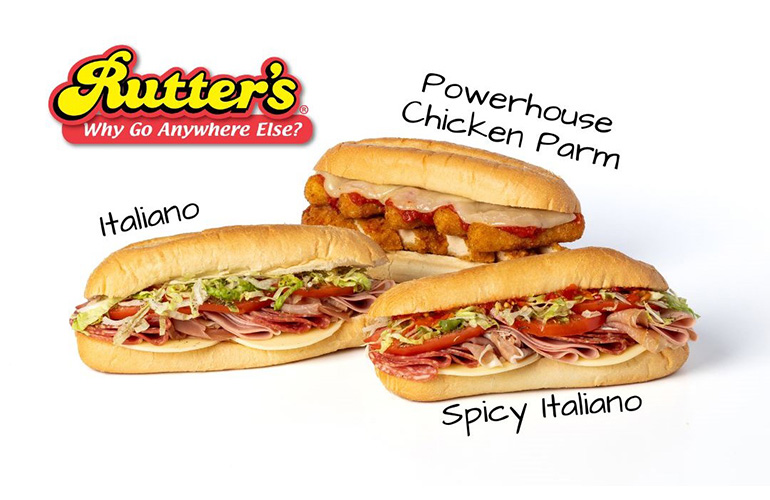The National Advisory Group (NAG) Conference in La Jolla, Calif., got under way on Monday, March 27, with educational sessions about burning issue topics.
“This is our first meeting since Minneapolis in September 2019. It has been a long two-and-a-half years, and I am so glad to see so many friendly faces. Zoom meetings and phone calls can’t replace the intimacy of a NAG Conference and the great times we have together at these meetings,” said John Lofstock, executive director of NAG, as he welcomed attendees to the conference.
“This year’s conference features speakers from 23 leading convenience store industry chains, the most we’ve had to date at a NAG Conference,” he added. “With this world-class agenda comes a renewed interest in NAG. This year we have 22 new-to-NAG chains in attendance.”
Lofstock introduced outgoing NAG Chairman Doug Galli, vice president and general manager of Reid Stores Inc. /Crosby’s, who welcomed attendees to the conference and discussed what makes NAG special.
“I hope you’re all prepared to listen, learn and share — the hallmark of NAG is exactly that,” he said.
Crosby announced that Vernon Young, president of Young Oil, is the incoming NAG chairman.

From left, speakers Tony El-Nemr, founder and CEO, Nouria Energy Corp.; David Simendinger, president, Champlain Farms; and Tom Robinson, president, Robinson Oil Corp. shared how they are building a winning culture at their chains.
Building Culture
The first educational session, “Culture as a Competitive Advantage,” featured speakers Tony El-Nemr, founder and CEO, Nouria Energy Corp.; Tom Robinson, president, Robinson Oil Corp.; and David Simendinger, president, Champlain Farms; who shared how they are building a winning culture at their chains.
Robinson discussed the history of Robinson Oil, a fourth-generation company, and how the strategy behind its culture includes working to be known as a good company by employees, customers, community, neighbors and vendors.
“It always starts with employees, and if employees say we’re a good company, we’re doing OK,” he said. During the pandemic, Robinson Oil ensured employees were paid well, that workloads were manageable, included profit sharing bonuses and kept turnover down.
Robinson expressed the importance of succession planning. He noted that succession planning is helpful not only for family members in the business, but for family members not in the business and for employees that aren’t family members, so that everyone knows what’s going on.
Simendinger spoke about the challenges of doing business in Vermont and navigating those challenges during the past two years of the pandemic.
He shared a look at the process of designing Champlain Farms stores, including a unique way of keeping the store coolers cold. He also spoke about environmental compliance, and his tank monitoring report system that has helped the chain stay compliant.
El-Nemr talked about the company’s 33 years in business and how it has been growing the Nouria brand over the last three years. “Today, we are an organization that is more diverse, diversified and successful,” he said.
Before COVID hit, Nouria had done an employee survey, and used those suggestions to implement a number of programs from communication to flexible time to tuition programs, as well as training to allow for promoting from within. “We offered so many different things that we were able not to lose too many (employees),” he said.
El-Nemr spoke about how Nouria is elevating its mission to withstand today’s challenges with labor, legislation and taxes. “For us change is not an option it is a necessity,” he said.
The chain introduced Café Nouria, a full-service café program; Nouria’s Kitchen, and over 50 My Nouria branded products with plans to roll out a dozen more this year. El-Nemr also spoke about the chain’s acquisition and growth plans, and the second generation of the family business.
Breakfast Business
In a session on “Loading Up for Breakfast,” moderator Jessica Williams, founder of Food Forward Thinking and speakers Tony Sparks, head of customer wow for Curby’s Express Market; Jerome Hunsinger, fresh food marketing brand manager for Wawa; and Dora Ocampo, senior foodservice category manager for Global Partners; shared insights on recapturing a strong breakfast business post-pandemic.

From left, moderator Jessica Williams, founder of Food Forward Thinking, and speakers Jerome Hunsinger, fresh food marketing brand manager for Wawa; Dora Ocampo, senior foodservice category manager for Global Partners; and Tony Sparks, head of customer wow for Curby’s Express Market, shared insights on recapturing a strong breakfast business post-pandemic.
Hunsinger, a Wawa veteran with 18 years of experience, shared an overview of the c-store chain and spoke about breakfast trends and strategy at Wawa, which got its start in 1964.
Ocampo spoke about Global Partner’s transition to a food first strategy and discussed the importance of a quality coffee program.
“The coffee is the building block to a great breakfast sandwich program,” she said. “Before solving for the need of breakfast, we need to make sure the coffee program can stand on its own.”
While customer traffic was down during COVID, Global launched bean-to-cup at about 200 locations. This May the chain is launching a breakfast sandwich program. She discussed the key decisions in launching a breakfast program, such as selecting a proprietary or branded program, equipment considerations and marketing.
Sparks, a c-store veteran, spoke about launching new-to-industry Curby’s Express Market. Curby’s is unique in that half of the store is a food and beverage quick-service restaurant (QSR), and it includes a double-lane drive-through. Sparks pointed to the next generation of convenience retailers that are food forward, do not feature fuel, and are competing against traditional c-store. He outlined Curby’s food program and branding elements, including soon-to-launch items.
“Breakfast is super important to us. The kolaches and our (grilled) burritos are really the drivers for us in our breakfast program,” he said.
He stressed the importance of finding a point of differentiation in your food program, and using employees with QSR experience to execute the food program.
Information Exchanges
Attendees had the opportunity to break into small groups of non-competing retailers to discuss pressing issues. The information exchanges are considered the heart and soul of NAG.
Store Tours
The afternoon included store tours of Valet Market, a new-to-industry frictionless store in downtown San Diego, and 7-Eleven’s San Diego Lab Store. Attendees also had time to explore La Jolla, Calif.




